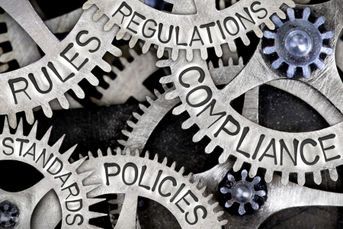Socially-conscious investing gets a boost from the DOL fiduciary rule
Labor Department acknowledges fiduciaries can apply environmental, societal and governance factors when investing
Proponents of sustainable and responsible investing have reason to celebrate. Long-term investing with careful consideration of environmental, social and governance factors is going mainstream.
On the regulatory front, updated guidance from the Labor Department acknowledges that fiduciaries can proactively apply ESG factors when making investment decisions, so long as they focus on the economic merits of doing so.
Interpretive Bulletin 2015-01, released by the DOL on Oct. 22, is intended to lessen concern about potential fiduciary risks for those who make “economically targeted investments.” This bulletin replaces previous guidance (Interpretive Bulletin 2008-1) that “unduly discouraged fiduciaries from considering economically targeted investments and environmental, social and governance (ESG) factors,” according to the DOL.
The earlier guidance created the widespread impression that ESG factors should only be used as tie-breakers when investments with comparable risk and return characteristics are under consideration. The old guidance overtly stated that “consideration of collateral, non-economic factors in selecting plan investments should be rare.” It also stressed that investors’ economic benefits must not be subordinated to collateral benefits. Fiduciaries interpreted these statements to mean the DOL presumed that employing ESG factors would normally diminish investor returns.
MISINTERPRETATION
The DOL now asserts that fiduciaries misinterpreted its stance and that it supports, with caution, the use of sustainable and responsible investing approaches in retirement plans. The new guidance states: “[ESG] issues may have a direct relationship to the economic value of the plan’s investment. In these instances, such issues are not merely collateral considerations or tie-breakers, but rather are proper components of the fiduciary’s primary analysis of the economic merits of competing investment choices.”
While the DOL deserves credit for providing this needed clarification to existing rules, the action has been awfully slow in coming. In addition, recent advances in the field beg the question, Why did the DOL stop short of saying that fiduciaries should consider ESG factors?
Despite the dampening effect that the old guidance from the DOL may have had in the retirement marketplace, sustainable and responsible investing has grown dramatically over the past decade. A 2014 study by the Forum for Sustainable and Responsible Investing found that from 1995 through 2014, the various forms of SRI increased tenfold and by the start of 2014, approximately $6.2 billion U.S.-domiciled assets were held by institutions that apply ESG factors in their investment decision-making. The DOL’s new guidance should accelerate this trend.
The rapid rise of SRI despite regulatory uncertainty reflects a new view of reality in the investment marketplace. There is a growing body of academic and industry research providing support for ESG in investment due diligence processes and the production of economic benefits for investors, both in the form of risk avoidance and performance enhancement.
Companies that do not pay close attention to ESG factors in their business practices are seen as being more susceptible to litigation, damaged reputations and other types of risks that detract from investment potential. Companies that pay attention to these matters are seen as having greater investment potential because they manage resources more carefully, have stronger and more stable labor and client relationships and have more effective and efficient governance structures in place.
Fiduciaries are expected to apply generally accepted investment theories as part of their regular investment decision-making processes. The magnitude of assets held by institutions that apply ESG factors, and the high proportion of professionals applying them, suggest that ESG investing fits the definition of “generally accepted.”
SUSTAINABILITY IMPORTANT
Adding strong support to that view is a report published in early 2015 by the United Nations Environment Programme Finance Initiative. The report, “Fiduciary Investing for the 21st Century,” examines investment practices and fiduciary duty in eight countries, including the U.S. It concludes that SRI goes beyond being merely proper or recommended from a fiduciary perspective. “Sustainability is an important factor in the long-term success of a business. Therefore, as with any other issue related to the prudent management of capital, considering sustainability is not only important to upholding fiduciary duty, it is obligatory.”
The biggest obstacle to the routine application of ESG considerations in investing is the lack of readily available data. That fact, along with the reality that actions by regulators like the DOL significantly lag marketplace developments, leads me to conclude that it is too soon to declare SRI a fiduciary obligation in the U.S.
However, access to high-quality data is rapidly improving. Significantly, fund research giant Morningstar recently announced plans to introduce a sustainability scoring system for funds generally, regardless of whether they are ESG-focused or not. Fiduciary advisers must pay attention to developments in the SRI space and consider how they can make use of ESG factors in service to their clients.
Blaine F. Aikin is chief executive of fi360 Inc.
Learn more about reprints and licensing for this article.







